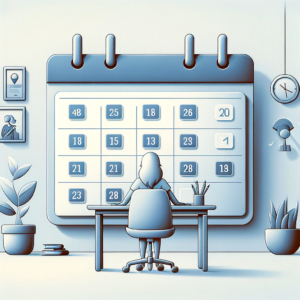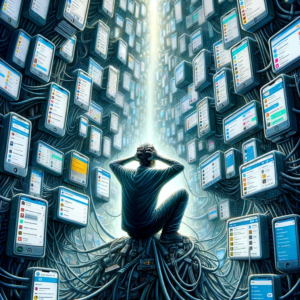Blogging has become a popular side hustle for many, lured by the promise of passive income, creative expression, and the flexibility to work from anywhere. However, the reality of blogging as a secondary income stream is often glossed over by success stories and income reports. Here’s a look at 13 hard truths about blogging as a side hustle, offering a realistic perspective for those considering or currently navigating this journey.
1. Success Takes Time
One of the most sobering truths about blogging is that success doesn’t happen overnight. Building a loyal readership, creating quality content, and establishing a presence in your niche can take years. The early stages of blogging are particularly challenging, with many bloggers giving up before seeing significant results. Patience and persistence are crucial, as is a long-term commitment to your blog’s growth.
2. Consistency is Key
Consistency in posting fresh, engaging content is non-negotiable for a successful blog. However, balancing content creation with other responsibilities can be overwhelming. Many aspiring bloggers underestimate the time and effort required to maintain a consistent posting schedule. Failure to do so can lead to a decline in readership and engagement, stalling your blog’s growth.
3. Quality Content Matters
The internet is saturated with blogs, making it difficult to stand out. High-quality, original content is essential to attract and retain readers. This requires not only excellent writing skills but also the ability to research, fact-check, and present information in a compelling way. Crafting such content takes significant time and effort, challenging the notion that blogging is an easy side hustle.
4. SEO Knowledge is Essential
Understanding and implementing Search Engine Optimization (SEO) strategies is crucial for driving traffic to your blog. However, SEO is complex and constantly evolving, requiring bloggers to stay informed and adapt their strategies. Many bloggers struggle with the technical aspects of SEO, which can hinder their blog’s visibility and growth.
5. Monetization is Challenging
Monetizing a blog is more complicated than simply adding advertisements or affiliate links. It requires a strategic approach and a substantial audience to generate significant income. Many bloggers find it challenging to monetize their blogs effectively, with only a small percentage earning enough to consider it a viable side hustle.
6. Competition is Fierce
The blogging world is highly competitive, with millions of blogs vying for attention. Standing out in a crowded niche requires creativity, innovation, and a unique voice. This competition can be daunting for new bloggers, making it difficult to gain traction and establish a loyal readership.
7. Reader Engagement is Unpredictable
Audience engagement can be unpredictable, with some posts resonating with readers more than others. This unpredictability can be frustrating, especially when a post you’ve poured your heart into receives little to no engagement. Understanding your audience’s preferences and adapting your content accordingly is a continuous and often challenging process.
8. Technical Skills are Necessary
Running a blog requires a certain level of technical expertise, including website design, maintenance, and troubleshooting. Many bloggers are unprepared for the technical challenges they encounter, which can lead to frustration and setbacks. Investing time in learning these skills or the money to hire experts is often necessary for a blog’s success.
9. Burnout is Real
Juggling blogging with other commitments can lead to burnout. The constant pressure to create content, engage with readers, and promote your blog can be exhausting. Many bloggers struggle to maintain a healthy work-life balance, which can impact their productivity and overall well-being.
10. Adaptability is Crucial
The digital landscape is constantly changing, with new trends, algorithms, and platforms emerging regularly. Staying relevant requires adaptability and a willingness to learn and evolve your blogging strategies. What worked yesterday might not work tomorrow, so staying informed and flexible is crucial for long-term success.
11. Social Media is a Double-Edged Sword
While social media can be a powerful tool for promoting your blog, it can also be a significant time sink. Balancing content creation with social media promotion and engagement can be overwhelming. Furthermore, the pressure to maintain an active social media presence can detract from the time spent on actual blogging.
12. Risky Revenue
Even for successful blogs, income can be unpredictable and fluctuate month to month. Relying on blog income as a stable source of revenue can be risky, particularly in the early stages. Diversifying income streams and having a financial buffer is crucial for bloggers relying on their blog income.
13. Legal and Ethical Responsibilities
Bloggers have legal and ethical responsibilities, including copyright laws, disclosure of affiliate links, and privacy regulations. Navigating these legalities can be complex and requires due diligence. Ignorance of these responsibilities can lead to legal issues and damage your blog’s reputation.
Blogging as a Side Hustle Is a Journey
Ultimately, blogging as a side hustle offers an exciting opportunity for creative expression and potential income. However, the journey is fraught with challenges that require patience, persistence, and a willingness to learn. Understanding these hard truths can prepare aspiring bloggers for the realities of blogging, helping them navigate the hurdles with informed expectations and strategies for success.
Catherine is a tech-savvy writer who has focused on the personal finance space for more than eight years. She has a Bachelor’s in Information Technology and enjoys showcasing how tech can simplify everyday personal finance tasks like budgeting, spending tracking, and planning for the future. Additionally, she’s explored the ins and outs of the world of side hustles and loves to share what she’s learned along the way. When she’s not working, you can find her relaxing at home in the Pacific Northwest with her two cats or enjoying a cup of coffee at her neighborhood cafe.
































